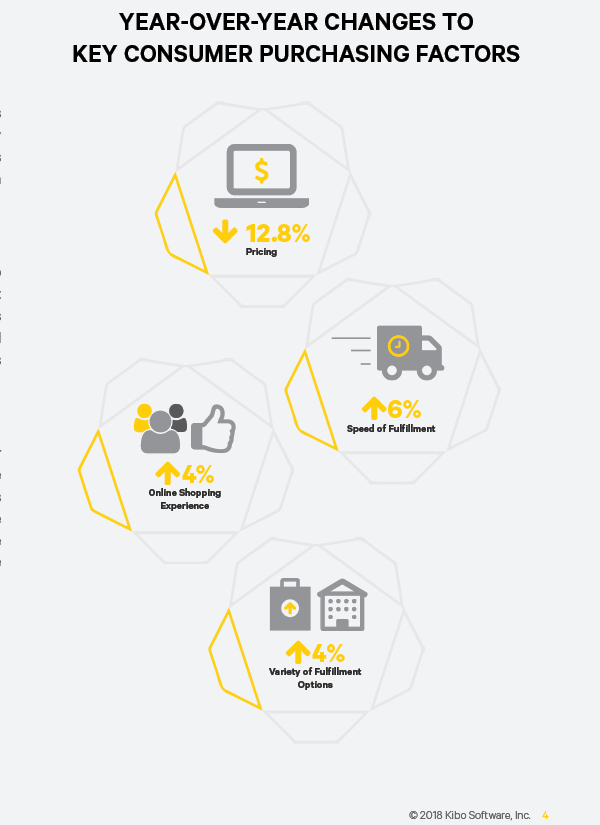Engaging the Informed Consumer

Retailers and branded manufacturers can differentiate themselves in a crowded marketplace by showcasing their most unique assets, according to Kibo’s annual 2018 Consumer Trends report. Based on responses from 3,000 U.S. consumers, the report suggests that while price is still the primary factor in purchasing decisions, consumers are increasingly seeking out a differentiated shopping experience—one that provides a rich, informative, and personalized online and in-store experience.
Among the report’s highlights:
The rise of shopping experiences. 61 percent of survey participants name price as the top factor influencing purchase decisions. That percentage, however, is down by more than 12.8 percent year over year. By contrast, the importance of the shopping experience doubled, and the percentage of respondents naming the variety and speed of fulfillment options as deciding factors grew by 1.3 times and 3 times, respectively.
Branded manufacturers should showcase deep online content. More than half of survey respondents say they expect extensive content on branded manufacturer websites, suggesting that product images, videos, reviews, detailed specifications, comparison guides, and other consideration tools are all apt investments. Inventory access and availability are crucial, as more than half of survey participants say they expect a manufacturer’s site to have items in stock, while 45 percent believe they’ll find a greater variety of products available, and 40 percent believe manufacturers will have more items than retailers.
Retailers should view stores as valuable assets—not relics. Buy Online, Pickup In-Store (BOPIS) is now considered a mainstream offering, with 67 percent of survey participants having used it in the past six months. Furthermore, shoppers widely recognize that BOPIS offers not only free order fulfillment, but also a degree of flexibility and control not available via home delivery. The ability to inspect items in the store before taking them home was the BOPIS benefit whose importance grew the most year over year—suggesting that stores’ tactile experiences are important brand assets.
Substantiating this finding is shoppers’ increasing willingness to engage store associates for assistance finding items; 57 percent of survey respondents say they’ve done so, an 18.8-percent increase from 2017. More than two-thirds of respondents say they expect those associates to have access to their order histories, suggesting expectations are high for knowledgeable interactions that draw on shoppers’ past interactions across touchpoints.
